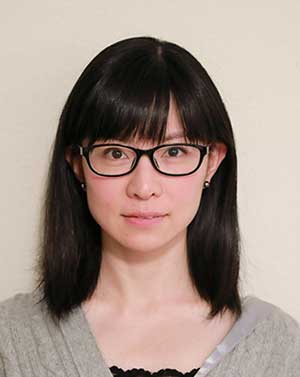
Dr. Ling Bai
AWARD RECIPIENT

Benyuan Young Investigator Program 2024

Chinese Institute for Brain Research, Beijing

The Functions and Mechanisms of Internal Sensation
Introduction
Dr. Ling Bai graduated from the School of Life Sciences at Tsinghua University. She earned her Ph.D. degree from the Neuroscience Program at Johns Hopkins University in 2017, under the mentorship of Dr. David Ginty, studying somatosensory neurons involved in touch sensation. She then pursued her postdoctoral training at the University of California, San Francisco, where she began investigating how feeding behaviors are influenced by various internal sensory signals and cell types (e.g., vagal sensory neurons, enteroendocrine cells). In 2021, she established her own lab at the Chinese Institute for Brain Research (CIBR) in Beijing.
The primary interest of Dr. Bai’s lab is to elucidate the functions and neural mechanisms underlying the body’s internal sensation. The lab focuses on understanding how diverse visceral signals are detected by primary sensory neurons and processed in the brain to orchestrate complex physiological responses and behaviors.
Selected Publications
1. Choi S, Hachisuka J, Brett MA, Omori Y, Iqbal N, DeLisle MM, Wolfson RL, Bai L, Gong S, Goulding M, Heintz N, Koerber RH, Ross SE, Ginty DD. Parallel ascending spinal pathways for affective touch and pain. Nature. 2020 Oct 28. PMID: 33116307
2. Chen Y, Jang H, Spratt PWE, Kosar S, Taylor DE, Essner RA, Bai L, Leib DE, Kuo TW, Lin YC, Patel M, Subkhangulova A, Kato S, Feinberg EH, Bender KJ, Knight ZA, Garrison JL. Soma-Targeted Imaging of Neural Circuits by Ribosome Tethering. Neuron. 2020 Aug 5. PMID: 32574560
3. Bai L, Mesgarzadeh S, Ramesh KS, Huey EL, Liu Y, Gray LA, Aitken TJ, Chen Y, Beutler LR, Ahn JS, Madisen L, Zeng H, Krasnow MA, Knight ZA. Genetic Identification of Vagal Sensory Neurons That Control Feeding. Cell. 2019 Nov 14. PMID: 31730854





 info@benyuanfoundation.org
info@benyuanfoundation.org
